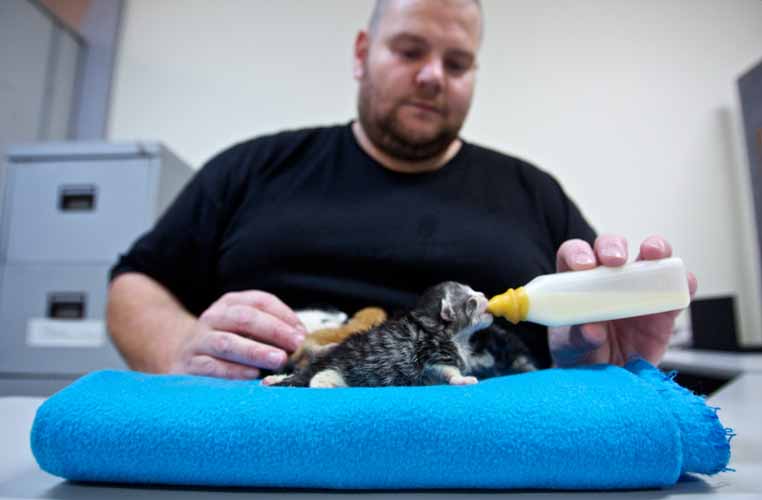A western suburbs cat shelter is reporting a spike in cases of a deadly disease that kills four in every five infected kittens.
Western Suburbs Cat and Kitten Rescue Service manager Nathan Miles said there appeared to be an outbreak of the cat strain of parvovirus, a highly infectious disease that attacks a cat’s gastrointestinal tract.
Mr Miles said cats at Keilor, Sydenham, Sunshine, Braybrook, Broadmeadows, Wyndham Vale, Hoppers Crossing and Footscray had tested positive for the disease in the past few months.
“It’s a terrible disease,” he said. “The mortality rate is really high. If you have a cat make sure it’s vaccinated or keep it inside.”
Mr Miles said an entire litter of kittens born in Wyndham Vale had to be euthanased recently after testing positive for the disease.
Canine strain
The spike in cases of feline parvovirus coincides with a jump in the canine strain of the disease across Melbourne.
On Friday, the Lort Smith Animal Hospital’s head of hospital services, Dr Russell Harrison, said 27 cases of canine parvovirus had been recorded at the hospital since the beginning of the year, compared to just 13 cases last year.
“This is of particular concern for us as it’s double the cases in half the time,” Dr Harrison said.
“Canine parvovirus is a serious disease. Without treatment, about 95 per cent of infected dogs will die, and even with treatment about 30 per cent won’t make it.”
Dr Harrison said the virus was highly contagious and could spread through the faeces of infected dogs.
“The disease is very hardy and can survive in the environment for up to 12 months,” he said.
“If a dog did a poo in a park and it was left in the grass, it could still be infectious if a dog sniffs it six to 12 months later.”
He urged dog and cat owners to vaccinate their animals.
Puppies can be vaccinated from six weeks old. They then require a booster one month after the initial jab and again four weeks later. Adult dogs require a booster every three years.
Symptoms of the virus start showing in dogs within one to seven days and initially include a loss of appetite and lethargy, leading to vomiting, bloody diarrhoea and dehydration.
The virus displays similar symptoms in cats, including fever, diarrhoea and vomiting.
Lost Dogs Home general manager of veterinary services Alan Bolton said the cat and dog strains of the virus were closely related.
“Cats have been shown to catch the virus from dogs but not typically the other way around,” Dr Bolton said.


















